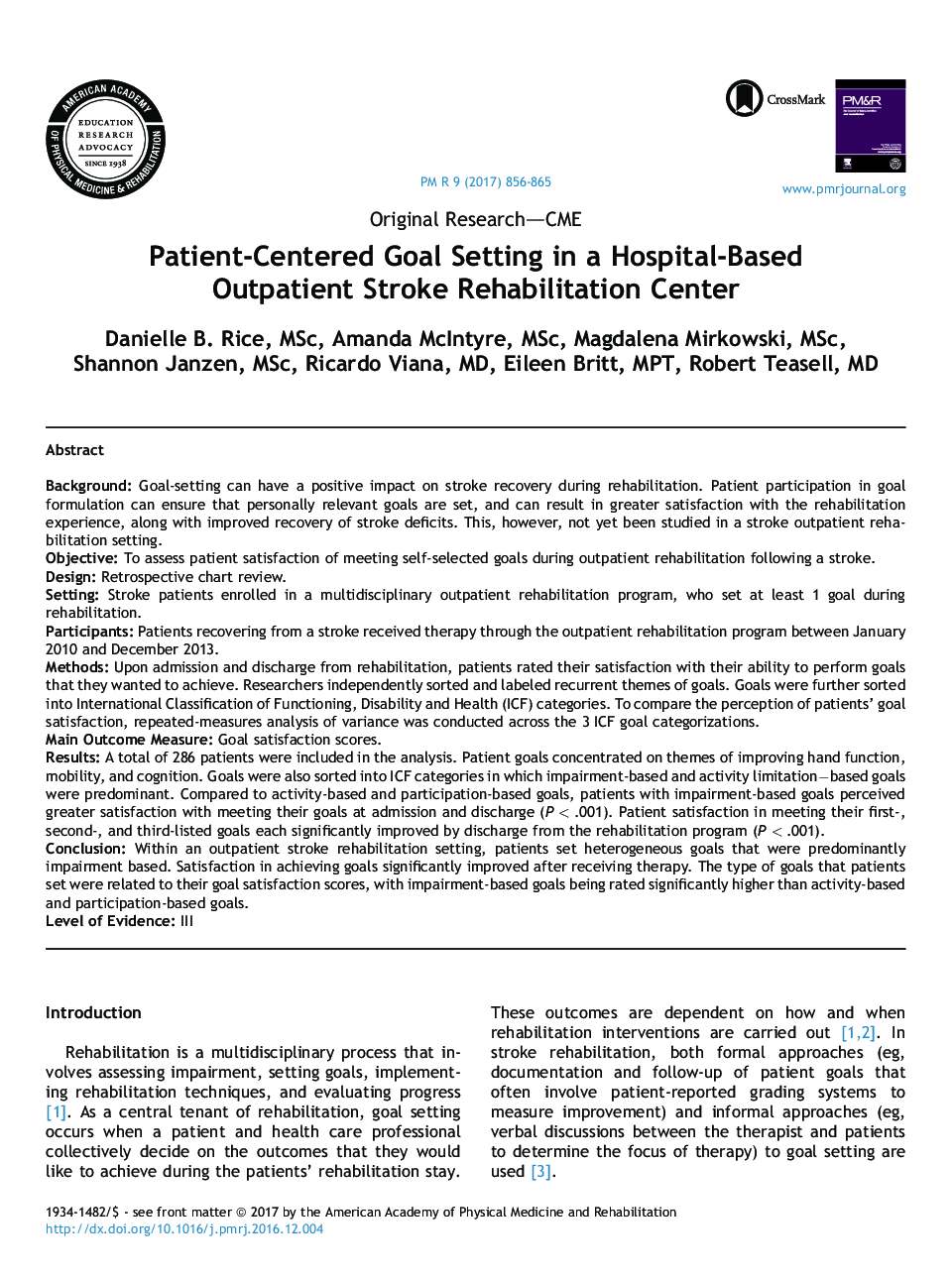| کد مقاله | کد نشریه | سال انتشار | مقاله انگلیسی | نسخه تمام متن |
|---|---|---|---|---|
| 5575237 | 1403963 | 2017 | 10 صفحه PDF | دانلود رایگان |
BackgroundGoal-setting can have a positive impact on stroke recovery during rehabilitation. Patient participation in goal formulation can ensure that personally relevant goals are set, and can result in greater satisfaction with the rehabilitation experience, along with improved recovery of stroke deficits. This, however, not yet been studied in a stroke outpatient rehabilitation setting.ObjectiveTo assess patient satisfaction of meeting self-selected goals during outpatient rehabilitation following a stroke.DesignRetrospective chart review.SettingStroke patients enrolled in a multidisciplinary outpatient rehabilitation program, who set at least 1 goal during rehabilitation.ParticipantsPatients recovering from a stroke received therapy through the outpatient rehabilitation program between January 2010 and December 2013.MethodsUpon admission and discharge from rehabilitation, patients rated their satisfaction with their ability to perform goals that they wanted to achieve. Researchers independently sorted and labeled recurrent themes of goals. Goals were further sorted into International Classification of Functioning, Disability and Health (ICF) categories. To compare the perception of patients' goal satisfaction, repeated-measures analysis of variance was conducted across the 3 ICF goal categorizations.Main Outcome MeasureGoal satisfaction scores.ResultsA total of 286 patients were included in the analysis. Patient goals concentrated on themes of improving hand function, mobility, and cognition. Goals were also sorted into ICF categories in which impairment-based and activity limitationâbased goals were predominant. Compared to activity-based and participation-based goals, patients with impairment-based goals perceived greater satisfaction with meeting their goals at admission and discharge (P < .001). Patient satisfaction in meeting their first-, second-, and third-listed goals each significantly improved by discharge from the rehabilitation program (P < .001).ConclusionWithin an outpatient stroke rehabilitation setting, patients set heterogeneous goals that were predominantly impairment based. Satisfaction in achieving goals significantly improved after receiving therapy. The type of goals that patients set were related to their goal satisfaction scores, with impairment-based goals being rated significantly higher than activity-based and participation-based goals.Level of EvidenceIII
Journal: PM&R - Volume 9, Issue 9, September 2017, Pages 856-865
